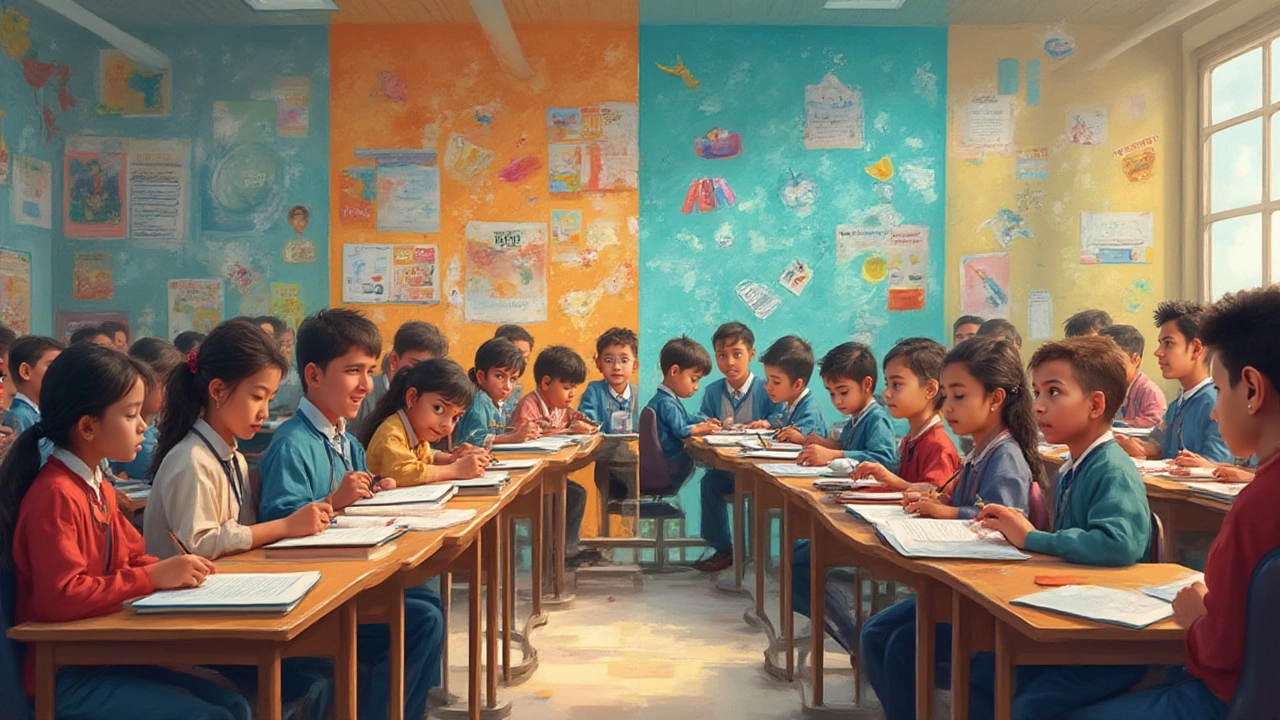Education Board Comparison – Which Indian Board Is Right for You?
Choosing a school board feels like picking a career path for a teen. Do you want a strict syllabus, creative projects, or global recognition? Let’s break down the most popular boards—CBSE, ICSE, IB, and the major state boards—so you can match a board’s strengths with your child’s goals.
Key Factors to Compare
Curriculum depth vs. breadth: CBSE focuses on concepts that help with national entrance exams, while ICSE dives deeper into subjects, offering a richer literary and scientific base. IB emphasizes interdisciplinary learning and critical thinking, ideal for students eyeing overseas universities. State boards vary; some stick to regional language and local history, which can be a cultural plus.
Assessment style: CBSE leans on objective, board‑level exams in Grade 10 and 12. ICSE mixes objective and descriptive questions, testing writing skills. IB uses a mix of internal assessments, projects, and final exams, rewarding consistent effort over cramming. Most state boards still follow the traditional yearly exam model.
University readiness: If your kid aims for engineering or medicine, CBSE’s alignment with JEE and NEET gives an edge. For competitive law or humanities, ICSE’s strong English and analytical focus can help. IB’s International Baccalaureate Diploma is widely accepted worldwide and often shortens undergraduate duration abroad.
Flexibility and extracurriculars: IB requires CAS (Creativity, Activity, Service) hours, encouraging community work. CBSE and ICSE allow clubs but don’t mandate them. Some state boards now integrate vocational subjects, giving a practical tilt.
Top Boards Overview
CBSE (Central Board of Secondary Education): Runs across India, known for uniform textbooks and a clear focus on science‑math. Its grading is straightforward and the exam dates are the same nationwide. Parents love the predictability, and students appreciate the direct link to national entrance tests.
ICSE (Indian Certificate of Secondary Education): Managed by CISCE, it offers a balanced syllabus with a strong emphasis on English language, arts, and practical labs. The board’s grading can be tougher, but it builds solid analytical writing skills.
IB (International Baccalaureate): Offers the PYP, MYP, and DP programs. The DP (Diploma Programme) is the most popular for grades 11‑12. It demands research papers, oral presentations, and a Theory of Knowledge course. The workload is high, but the payoff is a globally recognized diploma.
State Boards (e.g., Maharashtra, Tamil Nadu, Karnataka): Tailor content to regional curricula, include local languages, and often incorporate state-level exams. They can be more affordable and closer to home, but may lack the uniformity of national boards.
Here's a quick cheat‑sheet: if college entrance in India is the goal, CBSE wins; if you crave depth and strong English, go ICSE; for global mobility, choose IB; for cultural relevance and cost‑effectiveness, consider the state board.
Now that you have the main pieces, match them with your child’s learning style, future plans, and family budget. A good board won’t guarantee success, but it sets the stage for smoother navigation through school and beyond.
Jul
28

- by Dhruv Ainsley
- 0 Comments
Best Education Board for Future Success: CBSE, ICSE, IB, or State Board?
Confused about which school board paves the best path for future opportunities? Unpack the real differences between CBSE, ICSE, IB, and State Boards.